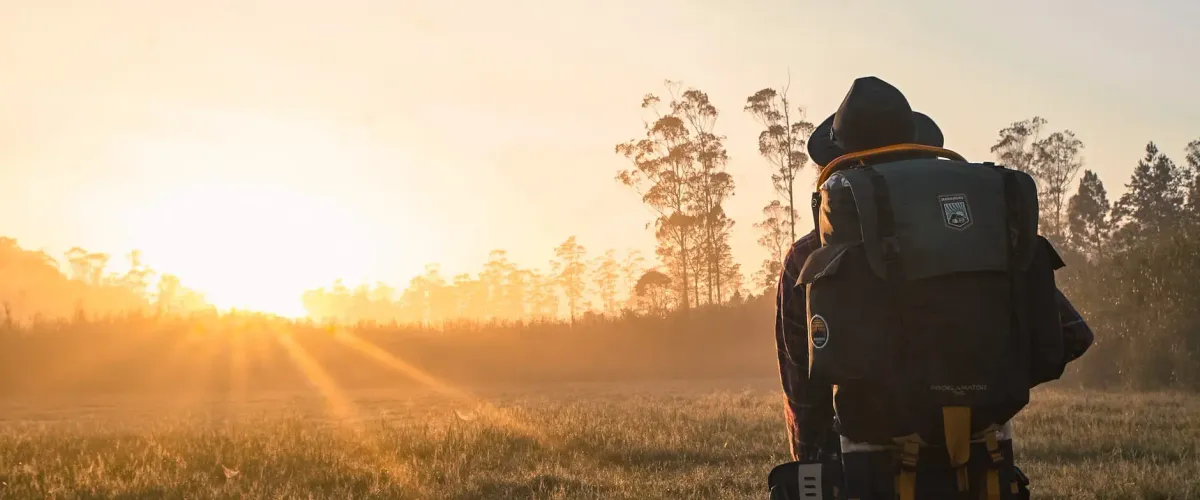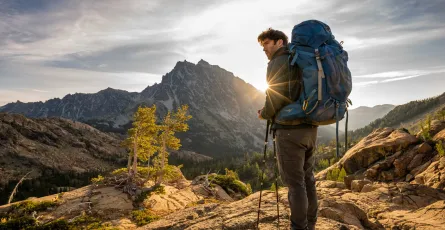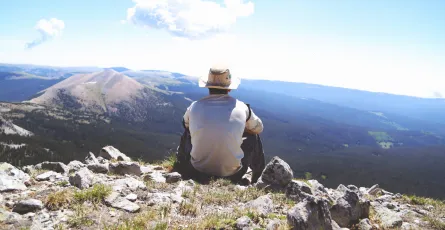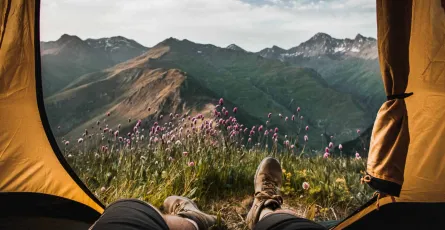
Backpacking Safety
- Trek Stud
- Backpacking
- 25 Jan, 2023
Backpacking Safety: Essential Tips for Staying Safe in the Wilderness
Backpacking offers an incredible opportunity to explore the beauty of nature, but it’s important to prioritize safety during your wilderness adventures. Whether you’re a beginner or a seasoned backpacker, understanding and practicing essential safety measures is crucial for a successful and secure trip. In this article, we will discuss key tips and guidelines to help you stay safe and enjoy your backpacking journey to the fullest.
Plan and Prepare: Thorough planning is the first step towards ensuring a safe backpacking trip. Research your destination, trail conditions, and weather forecasts. Obtain maps and gather information on potential hazards, regulations, and any required permits. Share your itinerary with a trusted friend or family member and establish a check-in system to keep them informed of your progress.
Pack the Essentials: Carry essential safety gear and equipment to address potential challenges. Include a first aid kit with supplies tailored to your trip’s duration and location. Carry a reliable multi-tool, fire starter, emergency whistle, and a signaling mirror. Additionally, bring extra food, water, and clothing to account for unforeseen circumstances or delays.
Know Your Limits: Honest self-assessment is crucial when backpacking. Be aware of your physical fitness, hiking abilities, and outdoor skills. Choose trails and distances that align with your capabilities. Pushing yourself beyond your limits can lead to accidents or exhaustion. Gradually challenge yourself as you gain experience and confidence.
Be Weather Aware: Stay informed about current and forecasted weather conditions for your backpacking destination. Sudden changes in weather can pose significant risks. Pack appropriate clothing layers to stay warm and dry. If severe weather is expected, consider altering your plans or seeking shelter until conditions improve.
Stay Hydrated: Hydration is paramount while backpacking. Carry sufficient water and have a plan for refilling along the trail. Regularly drink small amounts of water to stay hydrated, even if you don’t feel thirsty. Monitor your urine color as a general indicator of hydration levels. Remember that water sources in the wilderness may require treatment or filtration.
Practice Leave No Trace: Responsible outdoor ethics are essential for preserving the environment and minimizing human impact. Familiarize yourself with the principles of Leave No Trace (LNT) and adhere to them. Pack out all trash, dispose of waste properly, and respect wildlife and vegetation. Minimize campfire impact by using established fire rings or stoves, and always fully extinguish fires.
Wildlife Safety: Encounters with wildlife can be exhilarating, but it’s important to prioritize safety and respect their natural habitat. Learn about the wildlife species in the area you’ll be backpacking. Store food securely to prevent attracting animals. Keep a safe distance, avoid sudden movements, and never feed or approach wildlife. Use bear canisters or hang food properly to reduce the risk of attracting bears or other animals.
Navigation Skills: Develop basic navigation skills to avoid getting lost in the wilderness. Learn how to use a map and compass effectively. Familiarize yourself with trail markers, signs, and landmarks. Pay attention to the trail and always stay on marked paths. Avoid venturing off-trail unless you have advanced navigation skills and proper equipment.
Emergency Preparedness: Prepare for emergencies by carrying necessary items and knowing how to use them. Learn basic first aid techniques and CPR. Have a plan for emergency communication, such as a satellite phone or Personal Locator Beacon (PLB). Familiarize yourself with the nearest emergency services and trail access points.
Trust Your Intuition: Your instincts are valuable tools while backpacking. If a situation feels unsafe or uncertain, trust your intuition. If the trail conditions are beyond your comfort level or if you’re not feeling well, don’t hesitate to adjust your plans, turn back, or seek assistance.
Backpacking can be an incredibly rewarding experience, but safety should always be a top priority. By planning meticulously, packing wisely, and practicing essential safety measures, you can enjoy your wilderness adventures with confidence and peace of mind. Remember, a safe backpacking trip is a memorable one. Stay prepared, stay vigilant, and embrace the wonders of the great outdoors responsibly.




